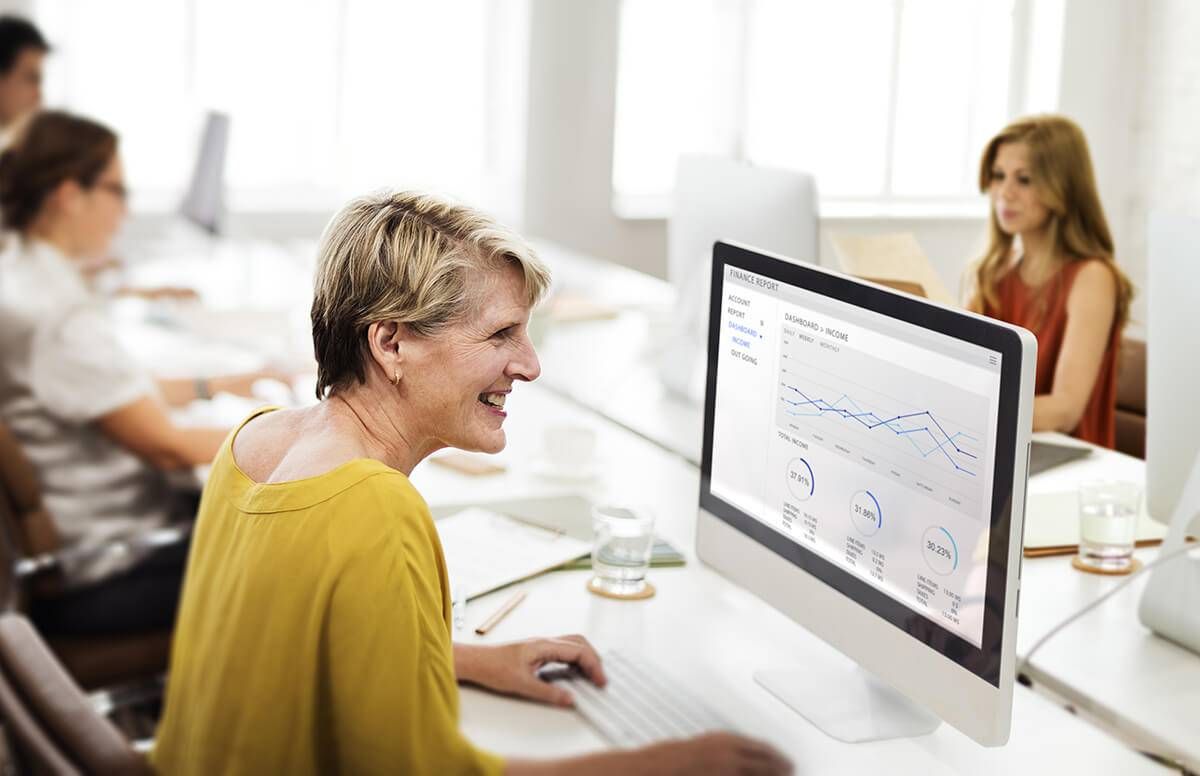What to Know About Workplace Safety in the Pandemic
An expert answers PBS NewsHour audience's top questions
As states and businesses around the country begin to reopen, many Americans are worried about the health risks of returning to work. Christina Banks, director of the Interdisciplinary Center for Healthy Workplaces at the University of California, Berkeley, joins PBS NewsHour’s Amna Nawaz to respond to questions and concerns about workplace safety during the COVID-19 pandemic.

The questions were sent to the NewsHour website, from Twitter, Instagram and Facebook. (Full disclosure: Facebook is a funder of PBS NewsHour.)
Amna Nawaz: The first question comes from Salli Szczesiul in Connecticut. She said: ‘I'm concerned I may contract the coronavirus from one of my co-workers or vice versa. We have been wearing masks and gloves and distancing six feet since March 15. But life's not perfect. Do I need to be worried?’
Cristina, Salli says she's got masks and gloves. They're distancing. What else can she be asking her employer for?
Our Commitment to Covering the Coronavirus
We are committed to reliable reporting on the risks of the coronavirus and steps you can take to benefit you, your loved ones and others in your community. Read Next Avenue's Coronavirus Coverage.
Cristina Banks: Well, one of the things that she didn't mention was cleaning. And the reason why this is important is because the risk and the danger is invisible. And what I would recommend is that Salli and anyone else in this condition talk to the employer about, what is the protocol? Are they following HHS [Health and Human Services] and CDC [Centers for Disease Control] guidelines, so that their safety can be assured in the workplace?
Antibody Tests, Hiring and Firing
Amna Nawaz: Open line of communication is a good idea, making sure the guidelines are all clear.
The next question comes from Greg Sink from Ohio, who writes: ‘My concern is the government and employers will use antibody test results in hiring and firing decisions. If you're not immune, you lose your job.’
Cristina, what about this issue? Could we see discrimination based on lab results or your health or immunity in the workplace?
Cristina Banks: It's a really good question, and I'm really glad that Greg brought up that question. And it's because we have to understand right off the bat that antibody tests are not perfect, and that they can result in false positives and false negatives.
So, we really have to worry about it having a discriminatory effect.
The best way to use antibody body tests in the future, I believe, is to gauge the risk that an individual has by returning to the workplace. A negative means greater risk, more protection. So I think that would be a proper way of using these tests.
Keeping Teachers Safe From COVID-19
Amna Nawaz: Let's jump down to another question from Rosie Singalewitch. She's a schoolteacher from New Jersey. Rosie says: ‘I'd like to know how we can send teachers back into the classroom, when, because of health or age, they might be the most at risk for infection in a building where there might be as many as thirteen hundred students. How do we protect everyone? I'm a teacher. I'm at risk. And I am not the only one with these concerns.’
Amna Nawaz: Cristina, what can you say to Rosie? We know schools across the country remain closed, but what can you say to teachers like her who are worried out there?
Cristina Banks: Well, she should be worried, because even though we would love our children to go back to school and teachers back to the classroom, there's no such thing as social distancing in those environments.
And then you also consider kids, the children at school. They like to affiliate. They like to touch. They like to touch their teachers. And so even the prohibitions of not touching, social distancing, wearing masks, all of those things, it's just not practical.
So I can imagine — though it's hard to say this, but I imagine that the only way to keep teachers and students safe is to wait for the vaccine.
Working in the Workplace vs. Working Remotely
Amna Nawaz: Let's just take one last question, from Nicole Stanteen from Texas. Her wife is the sole earner in the family. Nicole is worried about her wife returning to work. She says: ‘She has a neurodegenerative disease and is immunocompromised. My mom lives with us and is receiving treatments for terminal lung cancer. So, my wife may have to decide if she wants to risk two lives and go into the office or refuse and risk four lives: my wife, me, mom and our adult son.’
Cristina, Nicole has a lot of concerns there. But what can you say to someone like her right now?
Cristina Banks: Well, I think it comes down to whether she wants to work or whether she wants to not work.
If she chooses not to work and protect her family, that means she's looking for economic support. And there is the Family and Medical Leave Act, which would provide some economic support.
If she does want to work, then we should talk about alternative work arrangements: working from home or working at some remote location, not at the work site. But the important thing is that, whatever location that is, it has to be a single-person use and that there is a possibility for social distancing.
So these are just some alternatives that might be considered, but it's a tough situation to be in.

